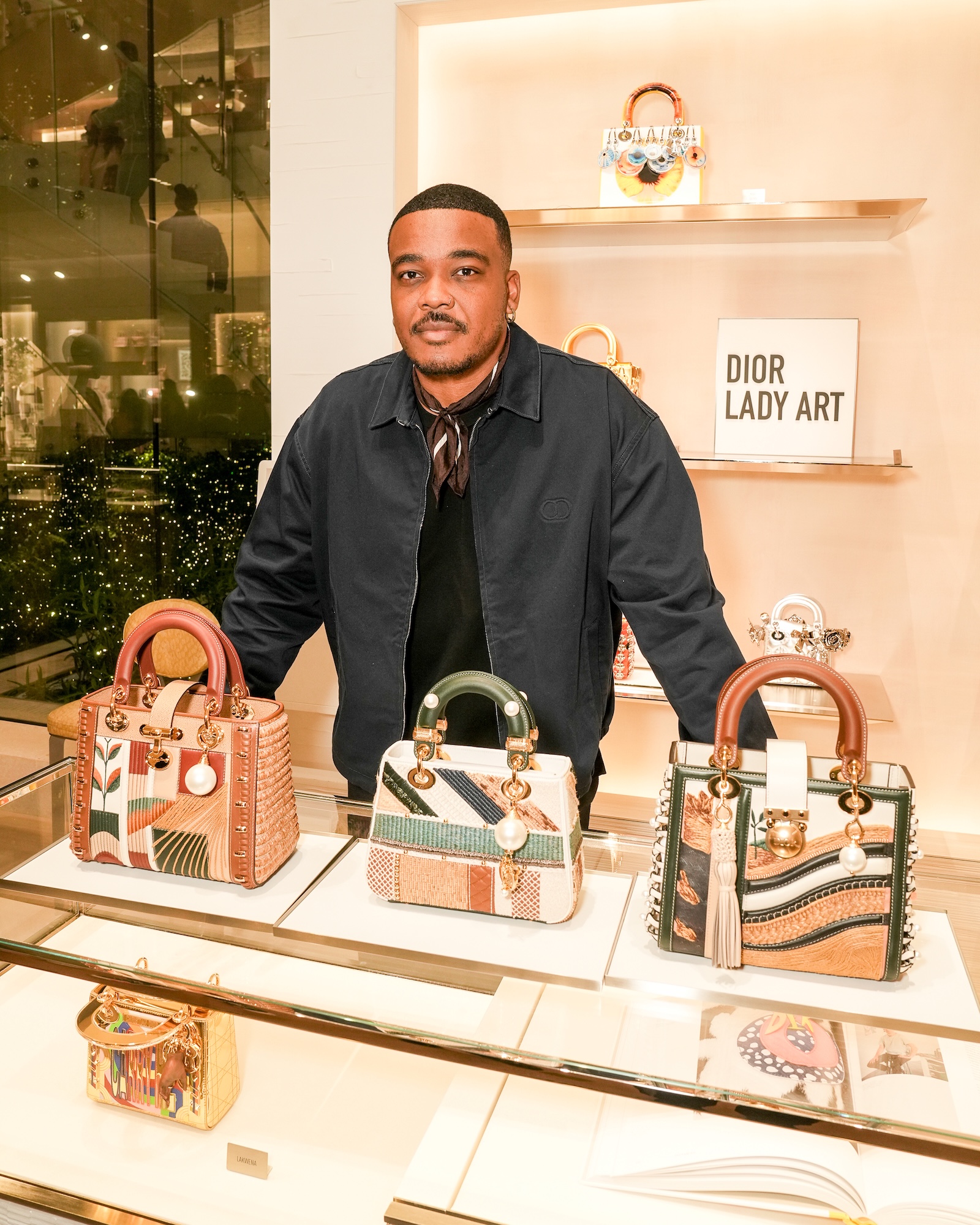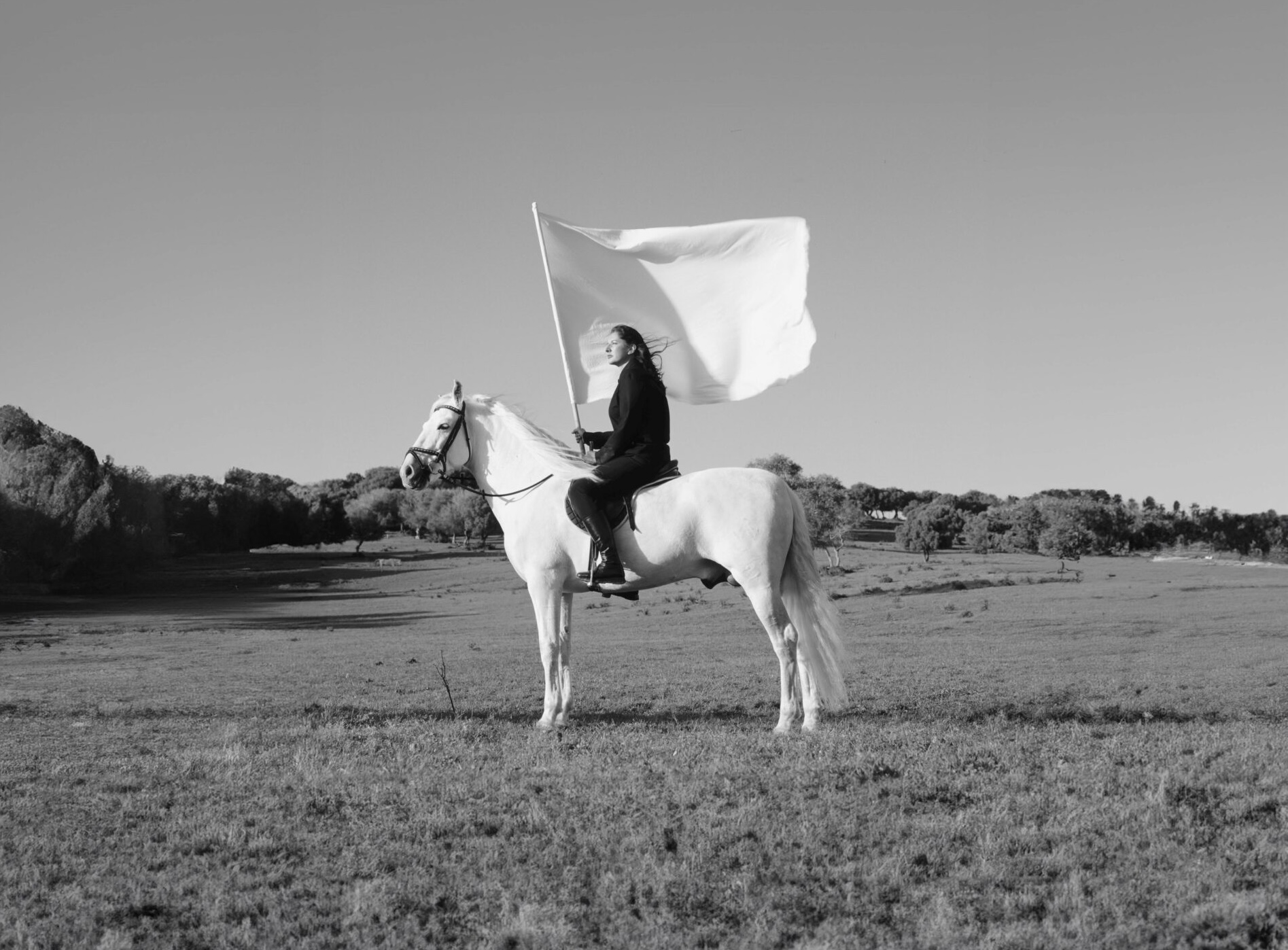

Claude [VonStroke](https://www.instagram.com/vonstroke/) may be known as America’s most successful house music DJ having run influential label Dirtybird, which is celebrating its 15th year this year. Along with his long time career in music he has been an avid collector of art decorating much of the Dirtybird catalogue with pieces of surrealist works.
Artist [Jeremy Fish](https://sillypinkbunnies.com) has a background in being San Francisco’s first artist in residency in 2015. Having began as a skater and working as a screen printer and eventually turning to visual arts Fish's illustrations have been presented throughout the world and in fine galleries as well as in commercial works for Nike, Microsoft, Adidas and a host of other clients.
With this monumental anniversary, VonStroke recently released a new album [_Freaks & Beaks_](https://open.spotify.com/album/3XYgCLJRFpAOUwMHpDRqha?si=McjBRZ0MSIe7XU8b0CkueQ), as well as a table book detailing the label's history with cover work by Fish. As we take time to slow down in the age of Corona, we take this chance to discover a conversation between the 2 men below.
**Claude VonStroke:** I feel like we probably lived parallel lives, but we never really ran into each other. I got to Oakland in like ‘98 or ‘99 and I didn't really know that much about art. I went to Upper Playground when I started and I just got really into it, your stuff there. I would just buy tee shirts and it actually just got me into looking at artwork in general.
**Jeremy Fish:** Oh Nice. That's nice to hear.
**Claude VonStroke:** It was really cool. I was always in that neighborhood when we all started DJing, it was almost like we would buy tee shirts and that was like our team uniform. All wearing Jeremy Fisher from Upper Playground. You just tapped into something. And then I started delving into a lot of different artists and looking around and seeing what was out there and going to shows and stuff. And then way down the line when Dirtybird actually started making a little bit of money, I was like, why don't we just start really supporting this? So I started hiring a different artists every year in that genre—very loosely in that genre. I don't know what you call it, that there's like all people that call low brows surrealism, pop surrealism. I don't know.
**Jeremy Fish:** I don't know that I really put a label on it. I think that with Upper Playground at that time we were working with such a mixture of people from different backgrounds. There were dudes that did graffiti, there were dudes that are illustrators, there were dudes that were kind of from a fine art background. So I hesitate to put labels on it because I'm not talking about one person.
But I do think that as far as the t-shirts becoming kind of your gateway into paying attention to this type of art, traditionally collecting art for our parents' generation was about having the money to do it and having it be kind of an elitist. I think the idea that you were collecting t-shirts from these artists, it was a nice way for us to communicate with an audience, to have that type of art on their chest. And now that's really a point of pride because it's one thing to hang something in your home, but it's a whole different thing to wear that piece on your chest and tell people, hey this is what I subscribe to. That's a different level of support.
**Claude VonStroke:** I feel like we connected with it. There were four of us in the beginning and we connected with that look or the vibe of that whole Lower Haight art scene while we were coming up ourselves and we were kind of developing a new sound in San Francisco that hadn't really been out yet. That was what we were wearing and that's kind of what we're vibing off of visually.
**Jeremy Fish:** I moved to the city in 1994 to go to the San Francisco Art Institute, which is the oldest art school on the West Coast and one of the few strictly fine arts institutions left in the city. My background was painting and screen printing. So when I got out of school, I started working in the skateboard industry, managing their print shop. I was the production manager, printing of tee shirts and skateboards for Thrasher and Deluxe and Think Skateboards and Juxtapoz and all those brands and it was a dream come true. Slowly, I started to slip in my own little designs and I gradually worked my way out of the production side of things into their art department's doing drawings.
Upper Playground was originally a record store that started making t-shirts. I walked after it had been there for like a year and a half and saw one of my friend’s designs in the window. Sam Flores had been working with them almost from the very beginning and I knew Sam because he was a cashier at Pearl on Market Street where I bought art supplies. I was at that age I wasn't very like confident, but I just like went in there and asked them what the deal was and started doing shirts with them shortly after that. It was just a bunch of guys like me and Sam who were very young and didn't have a lot of opportunity in the city and both kind of came from drawing skateboard illustration, which translate directly on a t-shirts really nicely. It was just a synchronicity of mutual friends and that time in the lower Haight and it just sort of fell into place. And it sounds like your label came shortly after that.


Photographed by Shauna Regan.
**Claude VonStroke:** It was kind of a similar story.
**Jeremy Fish:** It's funny to think about a relationship with a neighborhood that started when I was a college student. I mean, it was fucked up! The projects in the Lower Haight before they were rebuilt were raw. People were still shooting each other in broad daylight, a block away from our apartment on the Filmore side of Haight Street.
One day I came home to a guy in a suit and tie fucking a homeless lady on the couch blocking the gate to get in my apartment—not like the middle of the night or in a back alley, but in broad daylight. And now, the Haight Street Art Center, which is just down the street, is where a bronze statue is. To think that it went from what it was to having the largest crowd-funded bronze statue in California, just blocks away from there. The investments we made without realizing it and all the things that came out of it, including, like you said, inspiring you guys and providing a visual backdrop to the evolution of your label, is just not anything that you could plan or predict. It was just a bunch of niche dudes making things for people to wear on their chest in a city that was not New York or LA and it just had its own flavor, and still does.
**Claude VonStroke:** I don't remember Lower Haight being as grimy as you do. It was grimy when I got there, but I lived in Oakland for the first three years and then I moved over because my friends were just all in the city. I basically had to suck it up and do it, even though it was a bit more expensive. I do remember thinking that it was the most expensive shitty neighborhood in the world. It's not shitty, though. The people are cool. Everybody kind of like gets it, where it wasn't nice. When my wife and I actually bought a condo on Haight and Division, there were homeless people sneaking into our laundry room and living in there. It was not that nice, but it cost a fortune.
**Jeremy Fish:** How long ago was that?
**Claude VonStroke:** That was like nine years ago.
**Jeremy Fish:** So imagine how much fucking crazier it is now. There's probably someone who sold your laundry room as a condo.
**Claude VonStroke:** You could've got a bed in there! The one thing that worked about that scenario - where the projects are next to a nicer neighborhood and then another project and then a nice street, just changing block by block by block - is that you did get a very strange mix of people and I do think that was helpful to the scene. I don't know about your scene, but our scene for sure. Just dancing culture and the kind of people that would show up.
**Jeremy Fish:** I don't know exactly how, but the city is still incredibly diverse and full of so many weird people. I've been to so many things lately where you're just like, man, where the fuck did all these people come from and how did this get so weird, so fast?! I think it's more the energy as a place than it is the folks who come and go. It's a very transient place. It's not very big. It's the most expensive city in the country—more than Manhattan. It's just bananas, but it's not new. It ebbs and flows and there are periods when it's more expensive and periods when it’s less and we're just, unfortunately, in the middle of a 25 year span of just absolute fucking crazy technology and growth. But, I mean, the fucking microwave was invented here and the television was invented here and Atari’s from here. Steve Jobs and apps and phones and all this shit that generally changed the whole world. And there's a reason it's the most expensive city in the country. It's still full of crazy people. It's a very unique mixture for a city. And if it weren’t, neither my art career nor your record label would exist. Let's be fair.
**Claude VonStroke:** I don't know how much art has really changed the success or failure of the record label, but I do think that if you try to do better quality than everyone else, it will matter in the long run. We definitely spend money on artwork for projects and almost nobody else does. So our stuff does look cool and I'm hoping it will matter. But I mean, there's no way for me to quantify whether that helps the record or not.


Photographed by Christopher Michel/
**Jeremy Fish:** How do you put a price tag on gratitude? I have gratitude to this city for inspiring me and helping me perpetuate this career. And I think the money you guys are spending on art, on some level isn't that money you're spending because you're grateful for these things that inspired you and something that is a piece of the recipe to your company? I think something we have in common is being grateful for things that inspire you.
**Claude VonStroke:** It's definitely true. I never thought of it the way you just phrased it, but yeah, why not honor things that I really cherished? It's like a dream of mine for this to happen and thank you for doing it by the way.
**Jeremy Fish:** I was born in the mid-seventies in upstate New York and I've only really listened to hip-hop since I was old enough to buy cassettes. I haven't really evolved out of the genre I got into as like as a young dude. I have been fortunate enough to work with a ton of musicians in that genre and I’ve become friends with a lot of them.
**Claude VonStroke:** That makes perfect sense because that's all I listened to when I was a kid. Every year at Campout, I book someone that I always dreamed of having. This year, we're having Eric B and Rakim so if you want to come to Campout and check it out.
**Jeremy Fish:** Man, I saw those guys played the Fillmore last year. Eric B came out in a full length fur and dropped it on a stage and went and climbed behind the turntable.
**Claude VonStroke:** We've had everybody play Campout—EPMD, De La Soul, Biz Markie. Every year check one off the list and this is one of the big ones.
**Jeremy Fish:** Hell yeah!
**Claude VonStroke:** You know who was amazing is Big Daddy Kane.
**Jeremy Fish:** I saw him last summer, too. Did he have backup dancers with them?
**Claude VonStroke:** The two ladies? Yeah. Yeah.
**Jeremy Fish:** I saw him at the Yo MTV Raps anniversary last summer and he had, not Scoob and Scrap, but two guys that still did the moves. It was synchronized.
**Claude VonStroke:** Yeah, the younger guys.
**Jeremy Fish:** I saw KRS-One three months ago, and man, talk about a dude who's probably about to be 60 and he fucking slaughtered it.
**Claude VonStroke:** Really?
**Jeremy Fish:** He fucking did the sickest thing. The fucking sound went out and he just dropped the microphone and did an acapella without a mic for two song and the whole place was just like, wow!
**Claude VonStroke:** He's on the list. Yeah, that's a great suggestion.
 
Claude [VonStroke](https://www.instagram.com/vonstroke/) may be known as America’s most successful house music DJ having run influential label Dirtybird, which is celebrating its 15th year this year. Along with his long time career in music he has been an avid collector of art decorating much of the Dirtybird catalogue with pieces of surrealist works.
Artist [Jeremy Fish](https://sillypinkbunnies.com) has a background in being San Francisco’s first artist in residency in 2015. Having began as a skater and working as a screen printer and eventually turning to visual arts Fish's illustrations have been presented throughout the world and in fine galleries as well as in commercial works for Nike, Microsoft, Adidas and a host of other clients.
With this monumental anniversary, VonStroke recently released a new album [_Freaks & Beaks_](https://open.spotify.com/album/3XYgCLJRFpAOUwMHpDRqha?si=McjBRZ0MSIe7XU8b0CkueQ), as well as a table book detailing the label's history with cover work by Fish. As we take time to slow down in the age of Corona, we take this chance to discover a conversation between the 2 men below.
**Claude VonStroke:** I feel like we probably lived parallel lives, but we never really ran into each other. I got to Oakland in like ‘98 or ‘99 and I didn't really know that much about art. I went to Upper Playground when I started and I just got really into it, your stuff there. I would just buy tee shirts and it actually just got me into looking at artwork in general.
**Jeremy Fish:** Oh Nice. That's nice to hear.
**Claude VonStroke:** It was really cool. I was always in that neighborhood when we all started DJing, it was almost like we would buy tee shirts and that was like our team uniform. All wearing Jeremy Fisher from Upper Playground. You just tapped into something. And then I started delving into a lot of different artists and looking around and seeing what was out there and going to shows and stuff. And then way down the line when Dirtybird actually started making a little bit of money, I was like, why don't we just start really supporting this? So I started hiring a different artists every year in that genre—very loosely in that genre. I don't know what you call it, that there's like all people that call low brows surrealism, pop surrealism. I don't know.
**Jeremy Fish:** I don't know that I really put a label on it. I think that with Upper Playground at that time we were working with such a mixture of people from different backgrounds. There were dudes that did graffiti, there were dudes that are illustrators, there were dudes that were kind of from a fine art background. So I hesitate to put labels on it because I'm not talking about one person.
But I do think that as far as the t-shirts becoming kind of your gateway into paying attention to this type of art, traditionally collecting art for our parents' generation was about having the money to do it and having it be kind of an elitist. I think the idea that you were collecting t-shirts from these artists, it was a nice way for us to communicate with an audience, to have that type of art on their chest. And now that's really a point of pride because it's one thing to hang something in your home, but it's a whole different thing to wear that piece on your chest and tell people, hey this is what I subscribe to. That's a different level of support.
**Claude VonStroke:** I feel like we connected with it. There were four of us in the beginning and we connected with that look or the vibe of that whole Lower Haight art scene while we were coming up ourselves and we were kind of developing a new sound in San Francisco that hadn't really been out yet. That was what we were wearing and that's kind of what we're vibing off of visually.
**Jeremy Fish:** I moved to the city in 1994 to go to the San Francisco Art Institute, which is the oldest art school on the West Coast and one of the few strictly fine arts institutions left in the city. My background was painting and screen printing. So when I got out of school, I started working in the skateboard industry, managing their print shop. I was the production manager, printing of tee shirts and skateboards for Thrasher and Deluxe and Think Skateboards and Juxtapoz and all those brands and it was a dream come true. Slowly, I started to slip in my own little designs and I gradually worked my way out of the production side of things into their art department's doing drawings.
Upper Playground was originally a record store that started making t-shirts. I walked after it had been there for like a year and a half and saw one of my friend’s designs in the window. Sam Flores had been working with them almost from the very beginning and I knew Sam because he was a cashier at Pearl on Market Street where I bought art supplies. I was at that age I wasn't very like confident, but I just like went in there and asked them what the deal was and started doing shirts with them shortly after that. It was just a bunch of guys like me and Sam who were very young and didn't have a lot of opportunity in the city and both kind of came from drawing skateboard illustration, which translate directly on a t-shirts really nicely. It was just a synchronicity of mutual friends and that time in the lower Haight and it just sort of fell into place. And it sounds like your label came shortly after that.

Claude [VonStroke](https://www.instagram.com/vonstroke/) may be known as America’s most successful house music DJ having run influential label Dirtybird, which is celebrating its 15th year this year. Along with his long time career in music he has been an avid collector of art decorating much of the Dirtybird catalogue with pieces of surrealist works.
Artist [Jeremy Fish](https://sillypinkbunnies.com) has a background in being San Francisco’s first artist in residency in 2015. Having began as a skater and working as a screen printer and eventually turning to visual arts Fish's illustrations have been presented throughout the world and in fine galleries as well as in commercial works for Nike, Microsoft, Adidas and a host of other clients.
With this monumental anniversary, VonStroke recently released a new album [_Freaks & Beaks_](https://open.spotify.com/album/3XYgCLJRFpAOUwMHpDRqha?si=McjBRZ0MSIe7XU8b0CkueQ), as well as a table book detailing the label's history with cover work by Fish. As we take time to slow down in the age of Corona, we take this chance to discover a conversation between the 2 men below.
**Claude VonStroke:** I feel like we probably lived parallel lives, but we never really ran into each other. I got to Oakland in like ‘98 or ‘99 and I didn't really know that much about art. I went to Upper Playground when I started and I just got really into it, your stuff there. I would just buy tee shirts and it actually just got me into looking at artwork in general.
**Jeremy Fish:** Oh Nice. That's nice to hear.
**Claude VonStroke:** It was really cool. I was always in that neighborhood when we all started DJing, it was almost like we would buy tee shirts and that was like our team uniform. All wearing Jeremy Fisher from Upper Playground. You just tapped into something. And then I started delving into a lot of different artists and looking around and seeing what was out there and going to shows and stuff. And then way down the line when Dirtybird actually started making a little bit of money, I was like, why don't we just start really supporting this? So I started hiring a different artists every year in that genre—very loosely in that genre. I don't know what you call it, that there's like all people that call low brows surrealism, pop surrealism. I don't know.
**Jeremy Fish:** I don't know that I really put a label on it. I think that with Upper Playground at that time we were working with such a mixture of people from different backgrounds. There were dudes that did graffiti, there were dudes that are illustrators, there were dudes that were kind of from a fine art background. So I hesitate to put labels on it because I'm not talking about one person.
But I do think that as far as the t-shirts becoming kind of your gateway into paying attention to this type of art, traditionally collecting art for our parents' generation was about having the money to do it and having it be kind of an elitist. I think the idea that you were collecting t-shirts from these artists, it was a nice way for us to communicate with an audience, to have that type of art on their chest. And now that's really a point of pride because it's one thing to hang something in your home, but it's a whole different thing to wear that piece on your chest and tell people, hey this is what I subscribe to. That's a different level of support.
**Claude VonStroke:** I feel like we connected with it. There were four of us in the beginning and we connected with that look or the vibe of that whole Lower Haight art scene while we were coming up ourselves and we were kind of developing a new sound in San Francisco that hadn't really been out yet. That was what we were wearing and that's kind of what we're vibing off of visually.
**Jeremy Fish:** I moved to the city in 1994 to go to the San Francisco Art Institute, which is the oldest art school on the West Coast and one of the few strictly fine arts institutions left in the city. My background was painting and screen printing. So when I got out of school, I started working in the skateboard industry, managing their print shop. I was the production manager, printing of tee shirts and skateboards for Thrasher and Deluxe and Think Skateboards and Juxtapoz and all those brands and it was a dream come true. Slowly, I started to slip in my own little designs and I gradually worked my way out of the production side of things into their art department's doing drawings.
Upper Playground was originally a record store that started making t-shirts. I walked after it had been there for like a year and a half and saw one of my friend’s designs in the window. Sam Flores had been working with them almost from the very beginning and I knew Sam because he was a cashier at Pearl on Market Street where I bought art supplies. I was at that age I wasn't very like confident, but I just like went in there and asked them what the deal was and started doing shirts with them shortly after that. It was just a bunch of guys like me and Sam who were very young and didn't have a lot of opportunity in the city and both kind of came from drawing skateboard illustration, which translate directly on a t-shirts really nicely. It was just a synchronicity of mutual friends and that time in the lower Haight and it just sort of fell into place. And it sounds like your label came shortly after that.
 
Photographed by Shauna Regan.
**Claude VonStroke:** It was kind of a similar story.
**Jeremy Fish:** It's funny to think about a relationship with a neighborhood that started when I was a college student. I mean, it was fucked up! The projects in the Lower Haight before they were rebuilt were raw. People were still shooting each other in broad daylight, a block away from our apartment on the Filmore side of Haight Street.
One day I came home to a guy in a suit and tie fucking a homeless lady on the couch blocking the gate to get in my apartment—not like the middle of the night or in a back alley, but in broad daylight. And now, the Haight Street Art Center, which is just down the street, is where a bronze statue is. To think that it went from what it was to having the largest crowd-funded bronze statue in California, just blocks away from there. The investments we made without realizing it and all the things that came out of it, including, like you said, inspiring you guys and providing a visual backdrop to the evolution of your label, is just not anything that you could plan or predict. It was just a bunch of niche dudes making things for people to wear on their chest in a city that was not New York or LA and it just had its own flavor, and still does.
**Claude VonStroke:** I don't remember Lower Haight being as grimy as you do. It was grimy when I got there, but I lived in Oakland for the first three years and then I moved over because my friends were just all in the city. I basically had to suck it up and do it, even though it was a bit more expensive. I do remember thinking that it was the most expensive shitty neighborhood in the world. It's not shitty, though. The people are cool. Everybody kind of like gets it, where it wasn't nice. When my wife and I actually bought a condo on Haight and Division, there were homeless people sneaking into our laundry room and living in there. It was not that nice, but it cost a fortune.
**Jeremy Fish:** How long ago was that?
**Claude VonStroke:** That was like nine years ago.
**Jeremy Fish:** So imagine how much fucking crazier it is now. There's probably someone who sold your laundry room as a condo.
**Claude VonStroke:** You could've got a bed in there! The one thing that worked about that scenario - where the projects are next to a nicer neighborhood and then another project and then a nice street, just changing block by block by block - is that you did get a very strange mix of people and I do think that was helpful to the scene. I don't know about your scene, but our scene for sure. Just dancing culture and the kind of people that would show up.
**Jeremy Fish:** I don't know exactly how, but the city is still incredibly diverse and full of so many weird people. I've been to so many things lately where you're just like, man, where the fuck did all these people come from and how did this get so weird, so fast?! I think it's more the energy as a place than it is the folks who come and go. It's a very transient place. It's not very big. It's the most expensive city in the country—more than Manhattan. It's just bananas, but it's not new. It ebbs and flows and there are periods when it's more expensive and periods when it’s less and we're just, unfortunately, in the middle of a 25 year span of just absolute fucking crazy technology and growth. But, I mean, the fucking microwave was invented here and the television was invented here and Atari’s from here. Steve Jobs and apps and phones and all this shit that generally changed the whole world. And there's a reason it's the most expensive city in the country. It's still full of crazy people. It's a very unique mixture for a city. And if it weren’t, neither my art career nor your record label would exist. Let's be fair.
**Claude VonStroke:** I don't know how much art has really changed the success or failure of the record label, but I do think that if you try to do better quality than everyone else, it will matter in the long run. We definitely spend money on artwork for projects and almost nobody else does. So our stuff does look cool and I'm hoping it will matter. But I mean, there's no way for me to quantify whether that helps the record or not.

Photographed by Shauna Regan.
**Claude VonStroke:** It was kind of a similar story.
**Jeremy Fish:** It's funny to think about a relationship with a neighborhood that started when I was a college student. I mean, it was fucked up! The projects in the Lower Haight before they were rebuilt were raw. People were still shooting each other in broad daylight, a block away from our apartment on the Filmore side of Haight Street.
One day I came home to a guy in a suit and tie fucking a homeless lady on the couch blocking the gate to get in my apartment—not like the middle of the night or in a back alley, but in broad daylight. And now, the Haight Street Art Center, which is just down the street, is where a bronze statue is. To think that it went from what it was to having the largest crowd-funded bronze statue in California, just blocks away from there. The investments we made without realizing it and all the things that came out of it, including, like you said, inspiring you guys and providing a visual backdrop to the evolution of your label, is just not anything that you could plan or predict. It was just a bunch of niche dudes making things for people to wear on their chest in a city that was not New York or LA and it just had its own flavor, and still does.
**Claude VonStroke:** I don't remember Lower Haight being as grimy as you do. It was grimy when I got there, but I lived in Oakland for the first three years and then I moved over because my friends were just all in the city. I basically had to suck it up and do it, even though it was a bit more expensive. I do remember thinking that it was the most expensive shitty neighborhood in the world. It's not shitty, though. The people are cool. Everybody kind of like gets it, where it wasn't nice. When my wife and I actually bought a condo on Haight and Division, there were homeless people sneaking into our laundry room and living in there. It was not that nice, but it cost a fortune.
**Jeremy Fish:** How long ago was that?
**Claude VonStroke:** That was like nine years ago.
**Jeremy Fish:** So imagine how much fucking crazier it is now. There's probably someone who sold your laundry room as a condo.
**Claude VonStroke:** You could've got a bed in there! The one thing that worked about that scenario - where the projects are next to a nicer neighborhood and then another project and then a nice street, just changing block by block by block - is that you did get a very strange mix of people and I do think that was helpful to the scene. I don't know about your scene, but our scene for sure. Just dancing culture and the kind of people that would show up.
**Jeremy Fish:** I don't know exactly how, but the city is still incredibly diverse and full of so many weird people. I've been to so many things lately where you're just like, man, where the fuck did all these people come from and how did this get so weird, so fast?! I think it's more the energy as a place than it is the folks who come and go. It's a very transient place. It's not very big. It's the most expensive city in the country—more than Manhattan. It's just bananas, but it's not new. It ebbs and flows and there are periods when it's more expensive and periods when it’s less and we're just, unfortunately, in the middle of a 25 year span of just absolute fucking crazy technology and growth. But, I mean, the fucking microwave was invented here and the television was invented here and Atari’s from here. Steve Jobs and apps and phones and all this shit that generally changed the whole world. And there's a reason it's the most expensive city in the country. It's still full of crazy people. It's a very unique mixture for a city. And if it weren’t, neither my art career nor your record label would exist. Let's be fair.
**Claude VonStroke:** I don't know how much art has really changed the success or failure of the record label, but I do think that if you try to do better quality than everyone else, it will matter in the long run. We definitely spend money on artwork for projects and almost nobody else does. So our stuff does look cool and I'm hoping it will matter. But I mean, there's no way for me to quantify whether that helps the record or not.
 
Photographed by Christopher Michel/
**Jeremy Fish:** How do you put a price tag on gratitude? I have gratitude to this city for inspiring me and helping me perpetuate this career. And I think the money you guys are spending on art, on some level isn't that money you're spending because you're grateful for these things that inspired you and something that is a piece of the recipe to your company? I think something we have in common is being grateful for things that inspire you.
**Claude VonStroke:** It's definitely true. I never thought of it the way you just phrased it, but yeah, why not honor things that I really cherished? It's like a dream of mine for this to happen and thank you for doing it by the way.
**Jeremy Fish:** I was born in the mid-seventies in upstate New York and I've only really listened to hip-hop since I was old enough to buy cassettes. I haven't really evolved out of the genre I got into as like as a young dude. I have been fortunate enough to work with a ton of musicians in that genre and I’ve become friends with a lot of them.
**Claude VonStroke:** That makes perfect sense because that's all I listened to when I was a kid. Every year at Campout, I book someone that I always dreamed of having. This year, we're having Eric B and Rakim so if you want to come to Campout and check it out.
**Jeremy Fish:** Man, I saw those guys played the Fillmore last year. Eric B came out in a full length fur and dropped it on a stage and went and climbed behind the turntable.
**Claude VonStroke:** We've had everybody play Campout—EPMD, De La Soul, Biz Markie. Every year check one off the list and this is one of the big ones.
**Jeremy Fish:** Hell yeah!
**Claude VonStroke:** You know who was amazing is Big Daddy Kane.
**Jeremy Fish:** I saw him last summer, too. Did he have backup dancers with them?
**Claude VonStroke:** The two ladies? Yeah. Yeah.
**Jeremy Fish:** I saw him at the Yo MTV Raps anniversary last summer and he had, not Scoob and Scrap, but two guys that still did the moves. It was synchronized.
**Claude VonStroke:** Yeah, the younger guys.
**Jeremy Fish:** I saw KRS-One three months ago, and man, talk about a dude who's probably about to be 60 and he fucking slaughtered it.
**Claude VonStroke:** Really?
**Jeremy Fish:** He fucking did the sickest thing. The fucking sound went out and he just dropped the microphone and did an acapella without a mic for two song and the whole place was just like, wow!
**Claude VonStroke:** He's on the list. Yeah, that's a great suggestion.

Photographed by Christopher Michel/
**Jeremy Fish:** How do you put a price tag on gratitude? I have gratitude to this city for inspiring me and helping me perpetuate this career. And I think the money you guys are spending on art, on some level isn't that money you're spending because you're grateful for these things that inspired you and something that is a piece of the recipe to your company? I think something we have in common is being grateful for things that inspire you.
**Claude VonStroke:** It's definitely true. I never thought of it the way you just phrased it, but yeah, why not honor things that I really cherished? It's like a dream of mine for this to happen and thank you for doing it by the way.
**Jeremy Fish:** I was born in the mid-seventies in upstate New York and I've only really listened to hip-hop since I was old enough to buy cassettes. I haven't really evolved out of the genre I got into as like as a young dude. I have been fortunate enough to work with a ton of musicians in that genre and I’ve become friends with a lot of them.
**Claude VonStroke:** That makes perfect sense because that's all I listened to when I was a kid. Every year at Campout, I book someone that I always dreamed of having. This year, we're having Eric B and Rakim so if you want to come to Campout and check it out.
**Jeremy Fish:** Man, I saw those guys played the Fillmore last year. Eric B came out in a full length fur and dropped it on a stage and went and climbed behind the turntable.
**Claude VonStroke:** We've had everybody play Campout—EPMD, De La Soul, Biz Markie. Every year check one off the list and this is one of the big ones.
**Jeremy Fish:** Hell yeah!
**Claude VonStroke:** You know who was amazing is Big Daddy Kane.
**Jeremy Fish:** I saw him last summer, too. Did he have backup dancers with them?
**Claude VonStroke:** The two ladies? Yeah. Yeah.
**Jeremy Fish:** I saw him at the Yo MTV Raps anniversary last summer and he had, not Scoob and Scrap, but two guys that still did the moves. It was synchronized.
**Claude VonStroke:** Yeah, the younger guys.
**Jeremy Fish:** I saw KRS-One three months ago, and man, talk about a dude who's probably about to be 60 and he fucking slaughtered it.
**Claude VonStroke:** Really?
**Jeremy Fish:** He fucking did the sickest thing. The fucking sound went out and he just dropped the microphone and did an acapella without a mic for two song and the whole place was just like, wow!
**Claude VonStroke:** He's on the list. Yeah, that's a great suggestion.
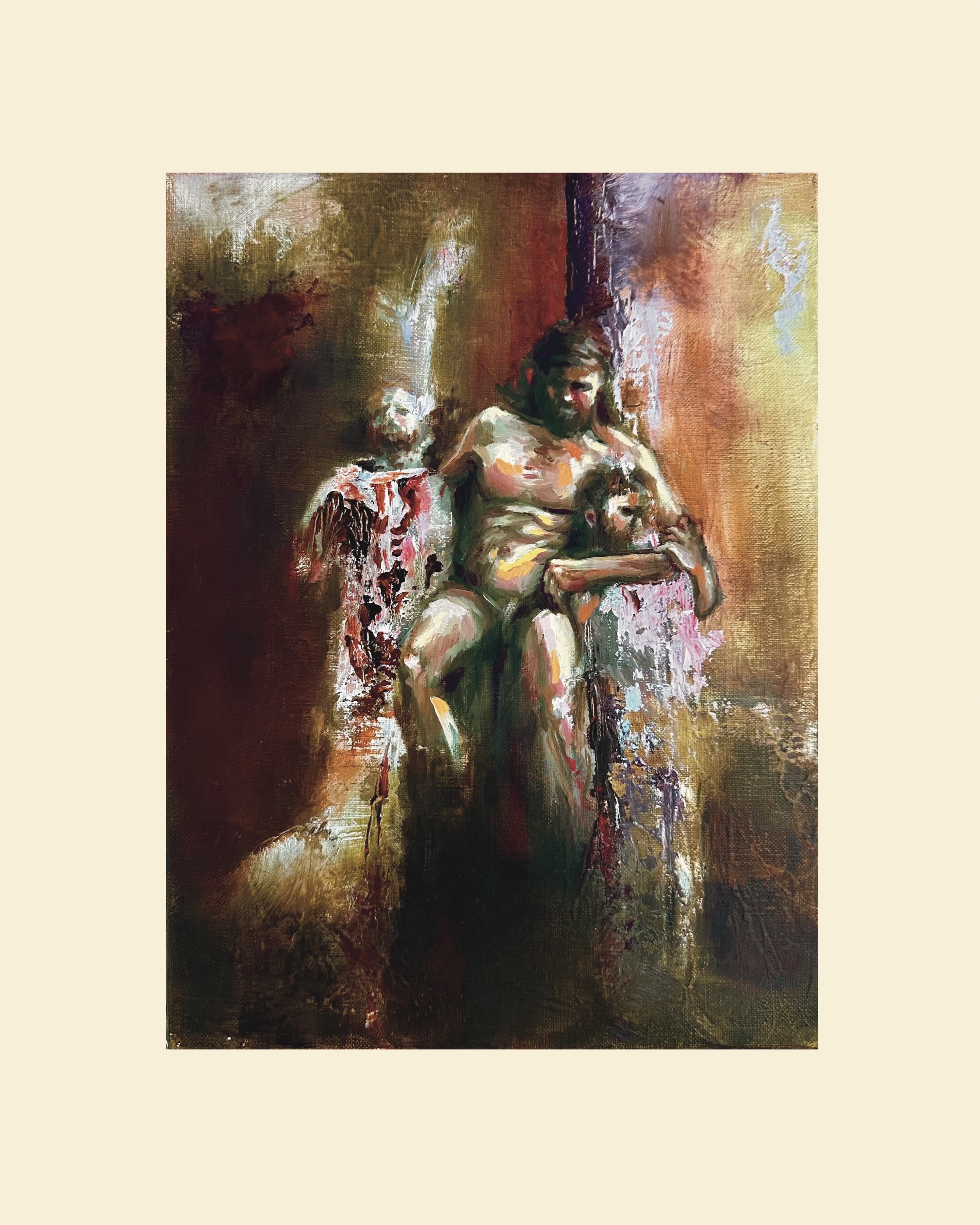

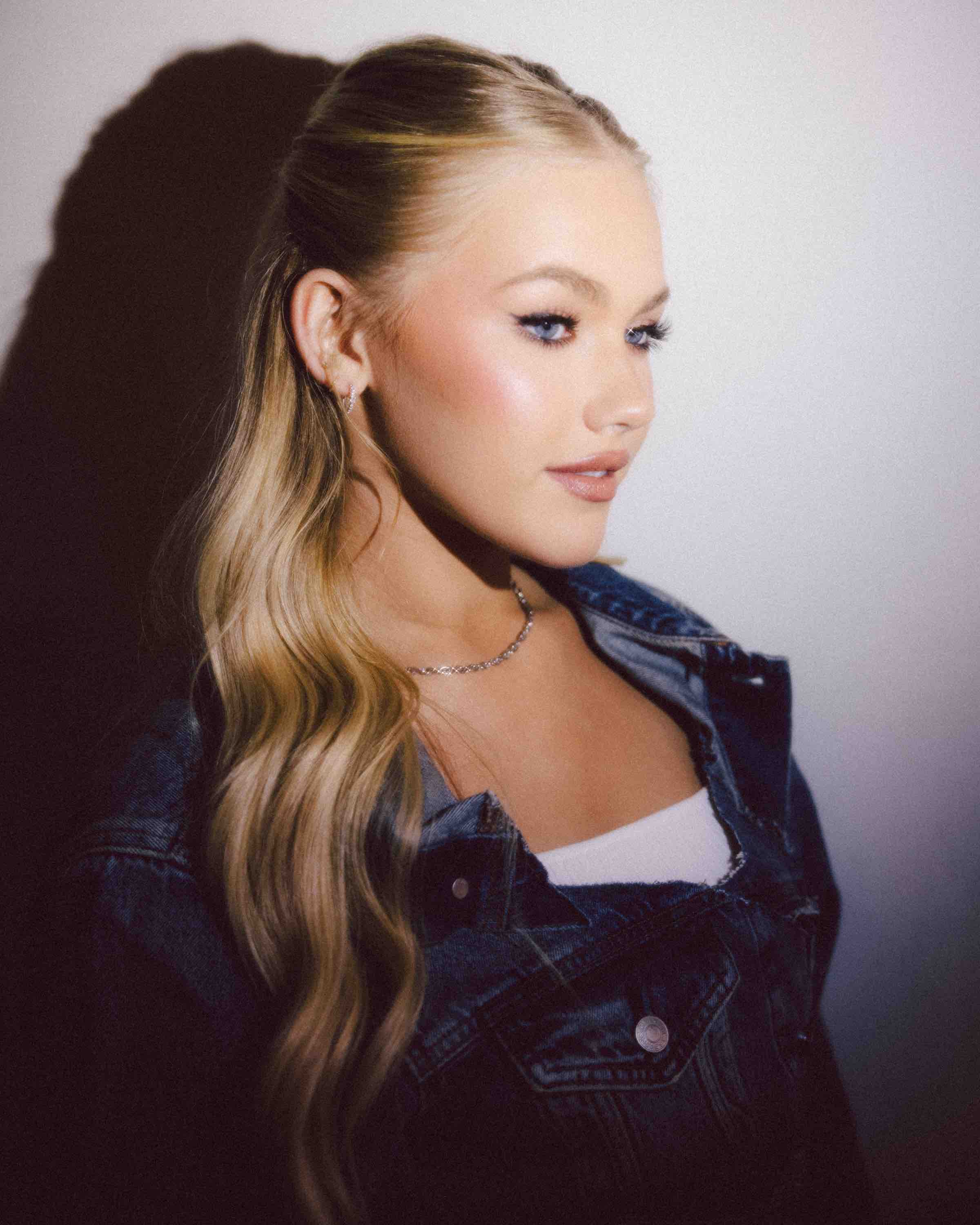
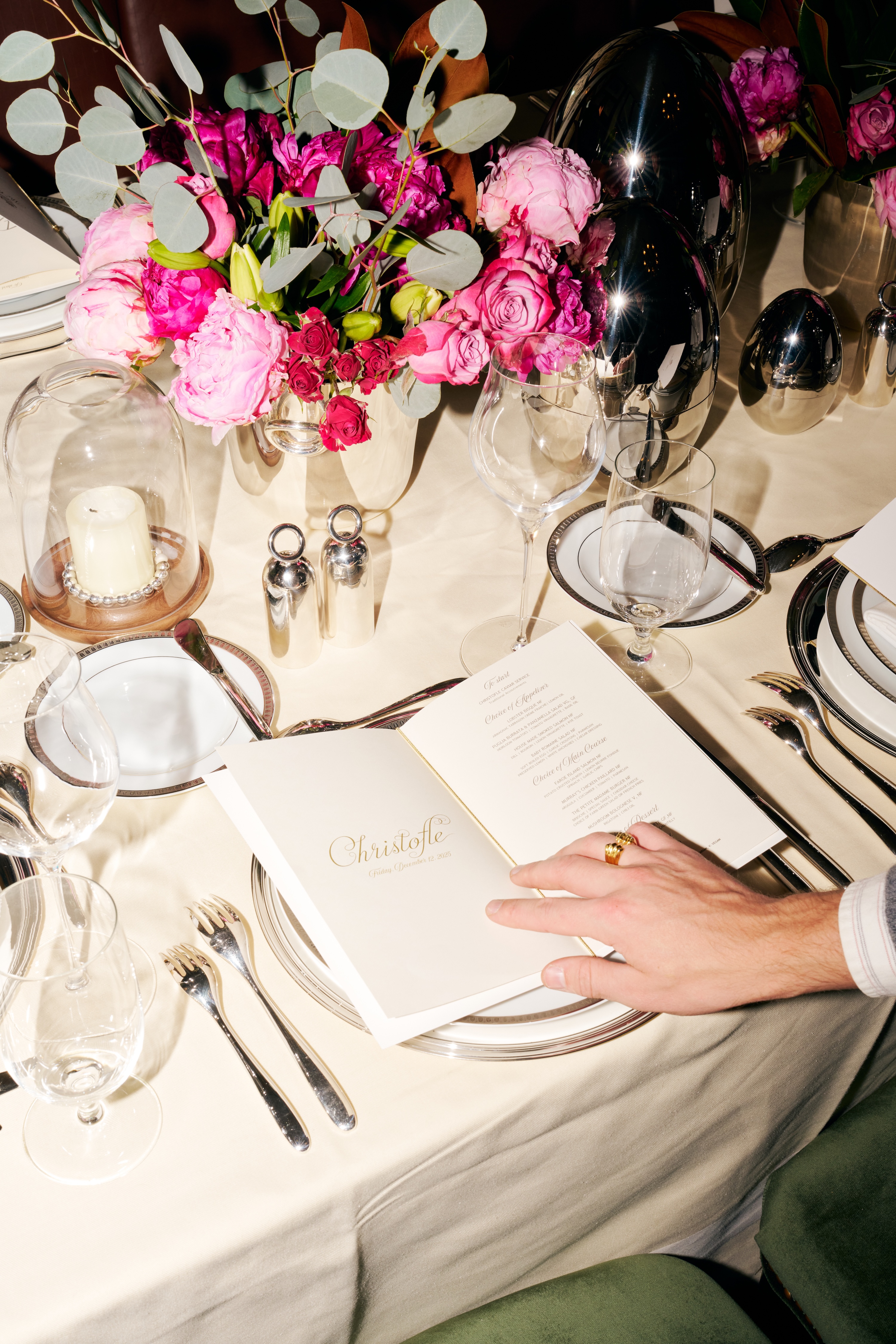
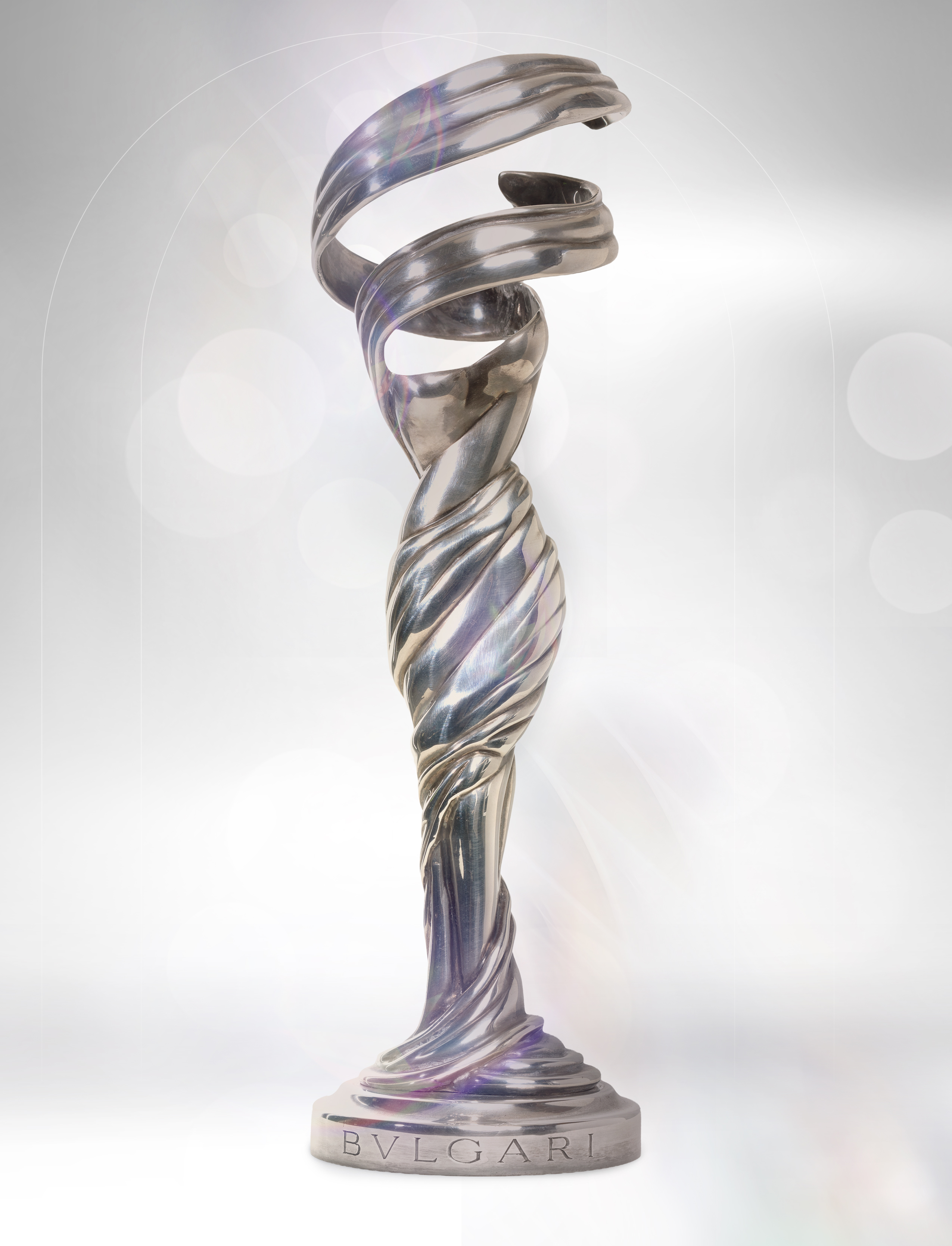
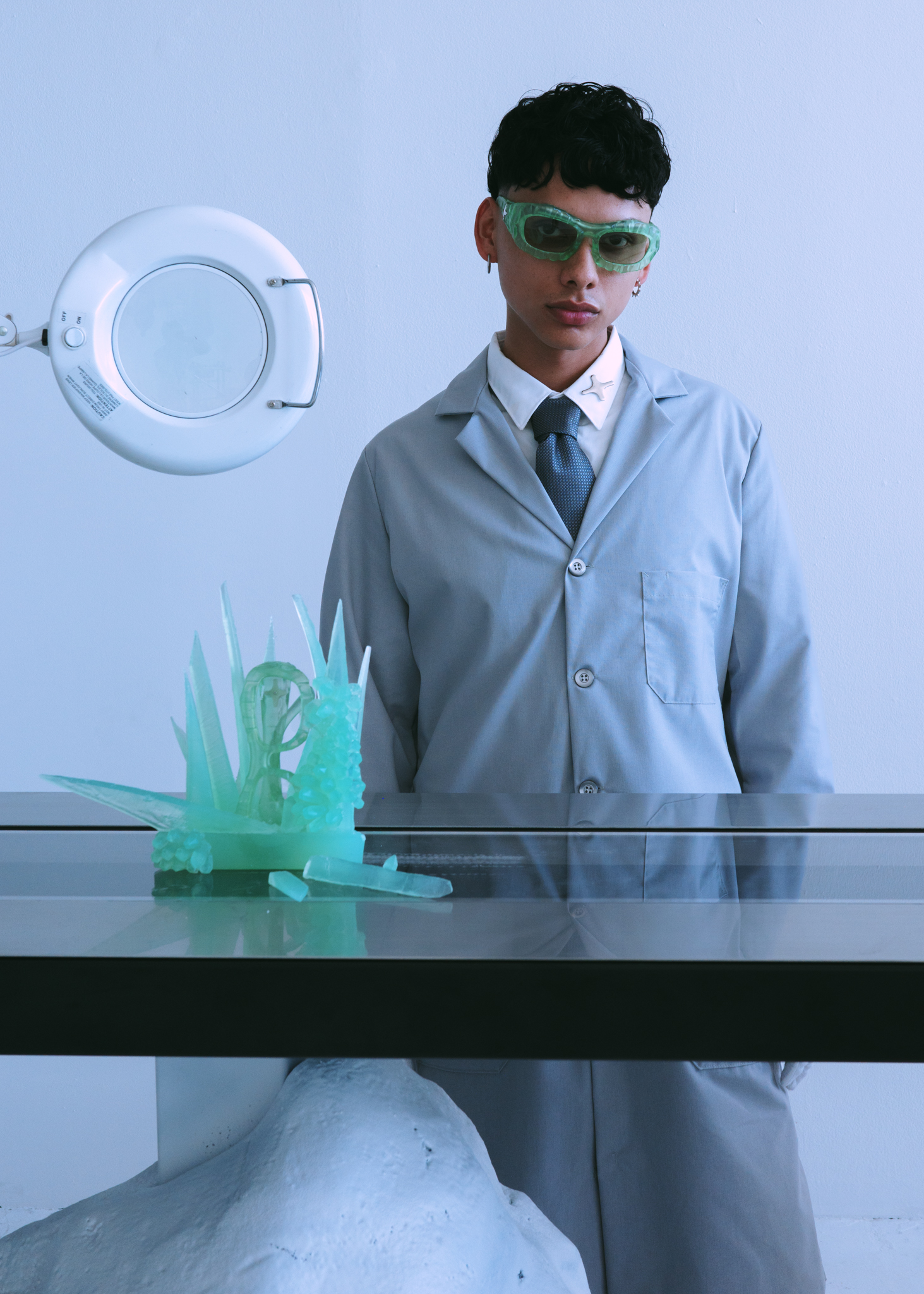
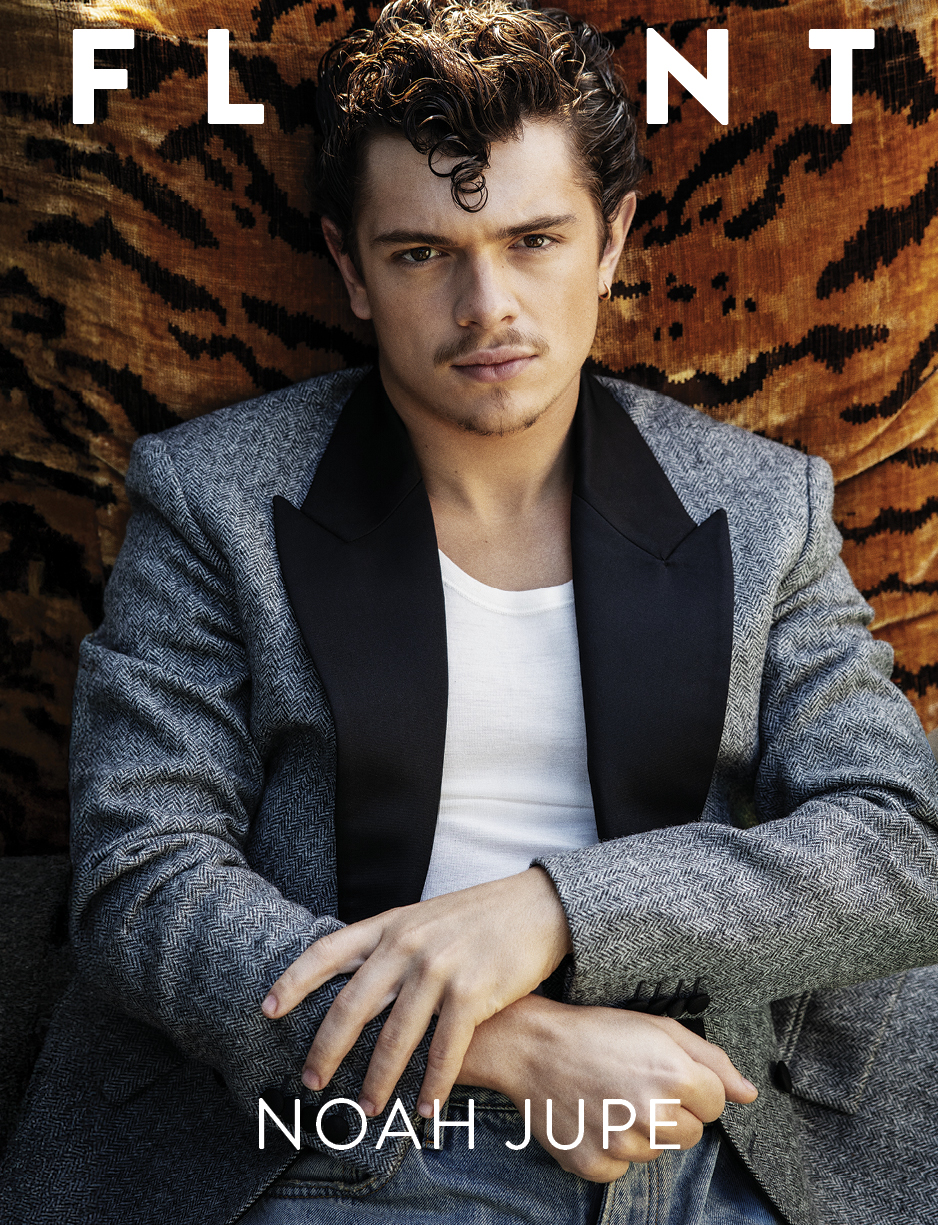
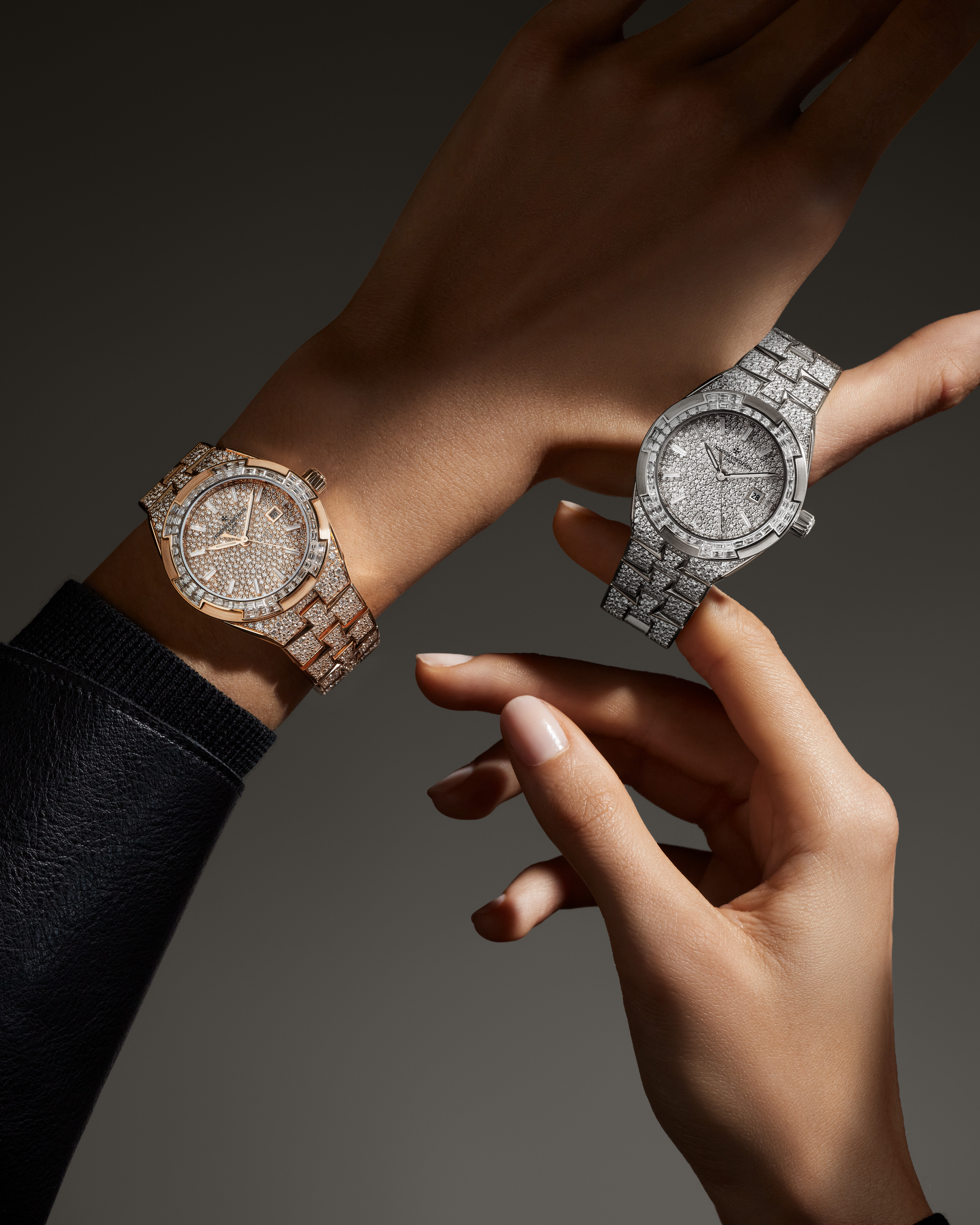
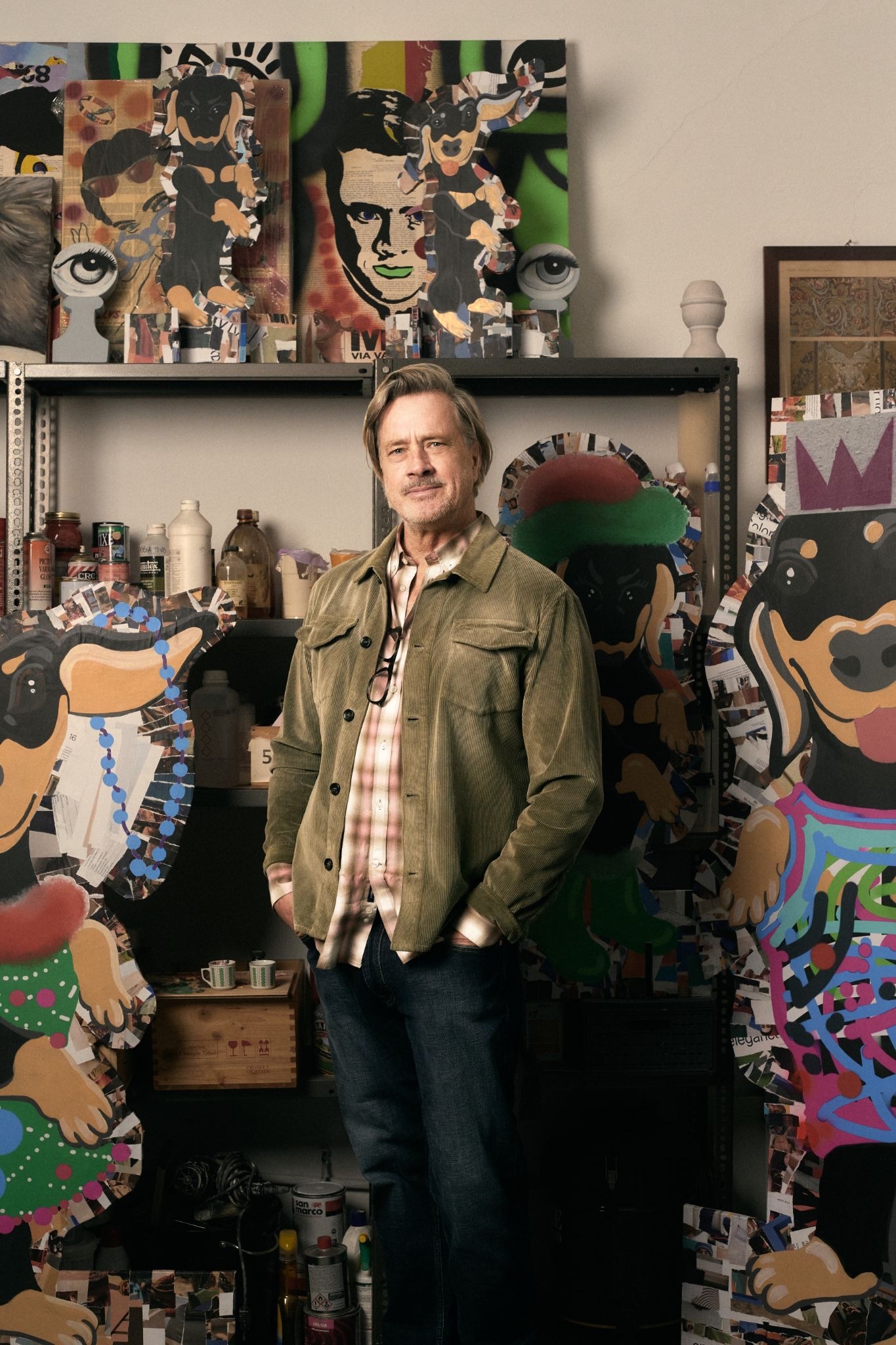
.JPG)
.jpg)
